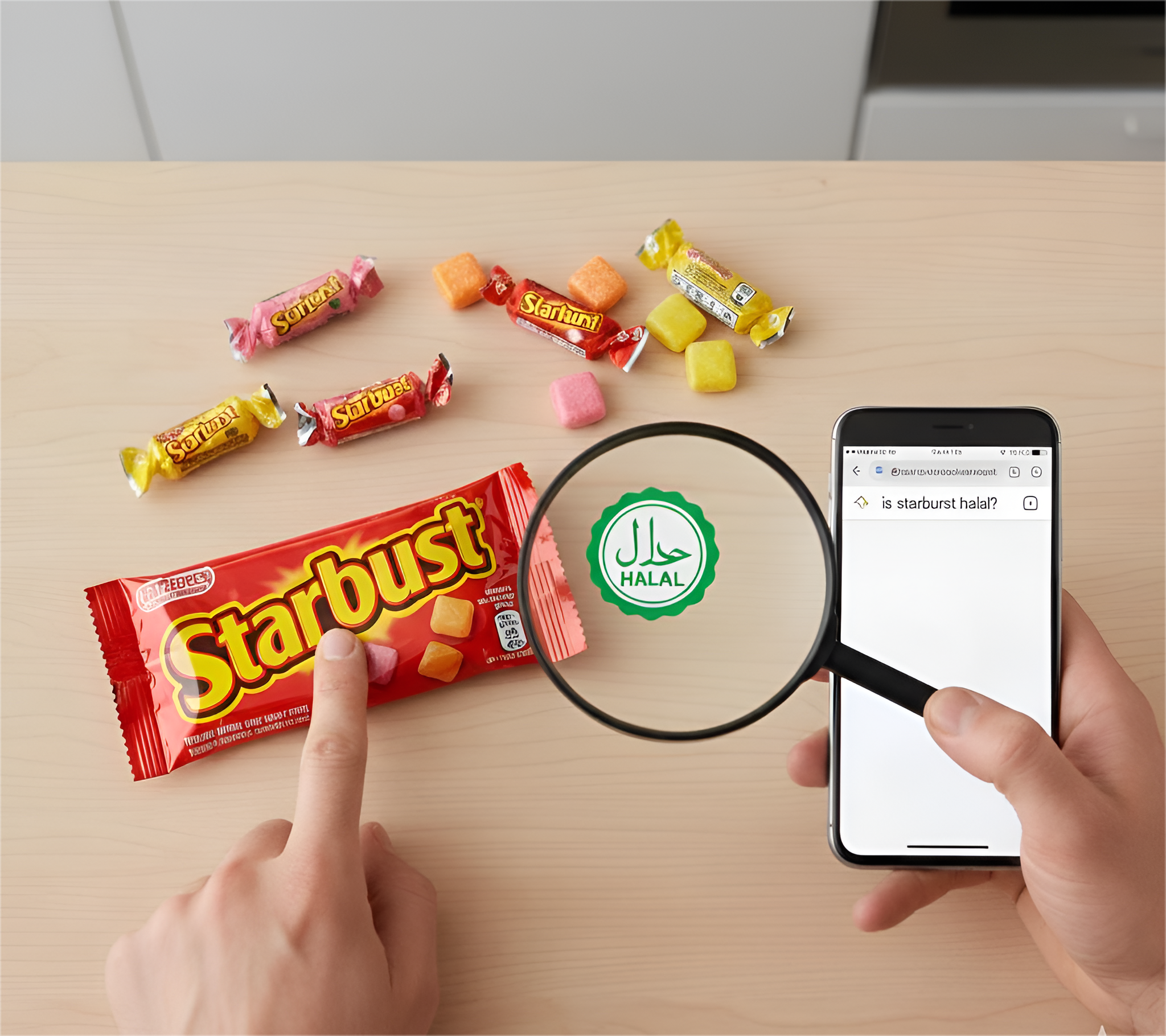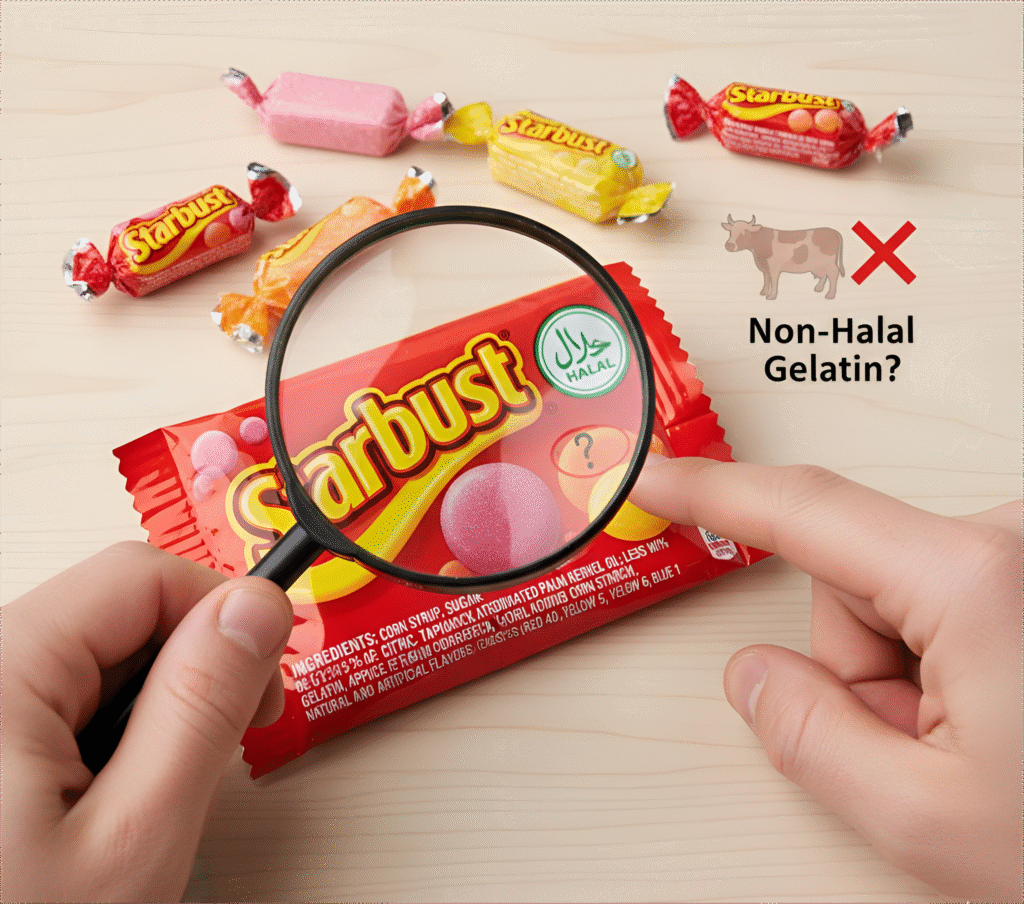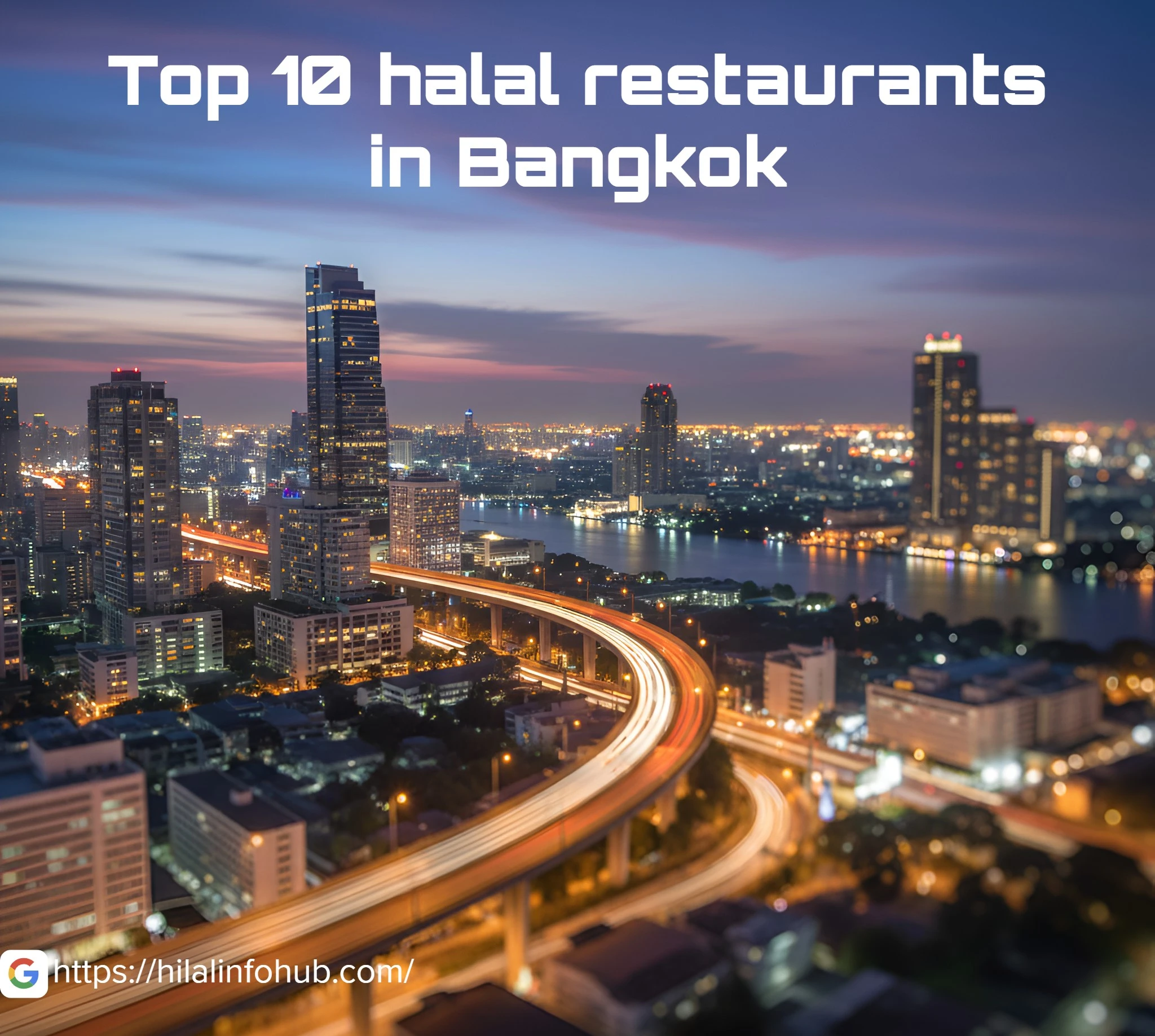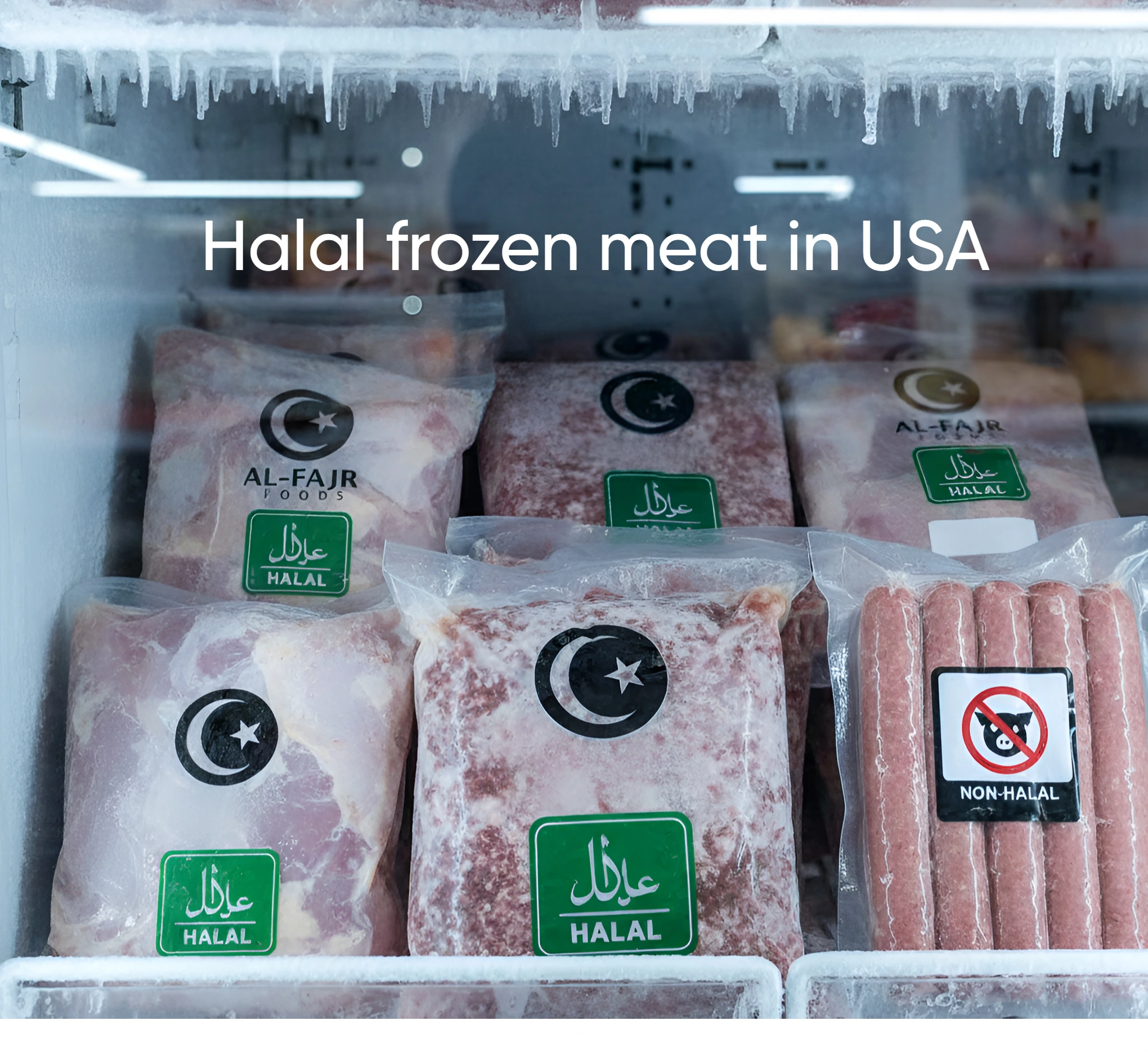Is Starburst Halal? US vs UK Ingredients and Certification

The Juicy Question: A Deeper Look into the Halal Status of Starburst
For some, the colorful, individually wrapped pieces of Starburst are a retro staple of the candy universe. The explosion of fruit flavor is a comforting and familiar taste. But for more than 1.8 billion Muslims around the world, the mere joy of indulging in a sweet treat is first met with an important question: “Is it halal?” In the case of Starburst, the answer is far from clear. It’s a tangled issue that cuts across international manufacturing variations, complicated ingredient sourcing, and different interpretations of Islamic dietary regulations. This in-depth investigation will uncover the layers of the Starburst halal dilemma, providing a detailed breakdown for the concerned consumer.
The path to declaring the halal status of Starburst is not just a yes or no. It’s a tale of geographical differences, where ingredients and manufacturing for Starburst in the United States vary substantially from that in the United Kingdom and other locations worldwide. This geographic difference is the main cause of the confusing and conflicting information that tends to come along with this well-loved candy.
Starburst in America: The Gelatin Dilemma
In America, the debate over whether or not Starburst is halal inevitably involves one ingredient only: gelatin. Used in the original fruit chews, gelatin is an animal protein that is processed from animal collagen, and it is the single biggest obstacle preventing Starburst from being deemed halal by the overwhelming majority of Muslims in the US.
Gelatin is used in confectionery to provide a chewy, elastic texture. However, in Islam, the permissibility of gelatin is entirely dependent on its source. If the gelatin is derived from an animal that has been slaughtered according to Islamic rites (zabiha), then it is considered halal. Gelatin from a pig is unequivocally haram (forbidden). The gray area emerges with gelatin from cows or other halal animals that have not been slaughtered in a zabiha manner.
The manufacturer of the Starburst candies, Mars, Incorporated (also referred to as Mars Wrigley), does not indicate the source of the gelatin in the ingredient list of their US products. This ambiguity puts Muslim consumers in a state of confusion. Though some consumer complaints to the company have allegedly been responded to by saying that the gelatin is derived from beef, this is not officially printed on the packaging. In addition, even if the beef gelatin is used, the animals in the conventional US meat sector are not slaughtered on Islamic grounds.
This points to a major point of debate in Islamic scholarship. Most Islamic scholars and Western certification bodies hold that gelatin from an animal that was not a zabiha animal is not acceptable. They reason that the method of slaughter is a primal requirement in order for the animal and its by-products to qualify as halal. Thus, with the gelatin used in US Starburst being of an unknown and, more probably than not, non-zabiha source, the consensus is overwhelming that Starburst fruit chews in America are not halal.
It should be mentioned that not every Starburst item sold in the US is made with gelatin. For example, Starburst Minis (those unwrapped, bite-sized ones) and Starburst Jellybeans have been commonly mentioned to be free from gelatin. But this does not necessarily qualify them as halal. People still need to be careful about the other ingredients used, which shall be mentioned later in this article.
Starburst in the United Kingdom: A More Encouraging Picture
Across the sea in the United States, the picture for Starburst is very different. In the United Kingdom, Mars Wrigley manufactures a gelatin-free version of Starburst. This is an important difference that renders UK Starburst a far more feasible option for Muslim consumers. Eliminating gelatin negates the main and most conclusive haram ingredient contained in the US version.
The introduction of gelatin-free UK Starburst was also a pleasant development for vegetarians and vegans. This has given rise to the general belief that if a product is vegan, it is halal. Although there is some overlap, the two dietary requirements are not identical. A product might not contain animal products at all and yet have products that are not allowed according to Islam.
Even without the gelatin, other ingredients in UK Starburst demand closer scrutiny from the halal point of view. They include natural and artificial flavorings, colorants, and glazing agents. That UK Starburst is generally regarded as halal-friendly by most Muslims in the region is universally agreed upon, but the fact that it does not carry official halal certification leaves room for personal discretion and some sensitivity to the rules of Islamic jurisprudence.
A Closer Examination of Potentially Problematic Ingredients

In addition to gelatin, there are several other ingredients that are widely used in confectionery such as Starburst and may be a source of trouble for anyone on a halal diet.
1. Flavorings and the Problem of Alcohol:
Natural and artificial flavorings are elaborate blends that can include a whole host of ingredients. Ethyl alcohol is one of the most widespread solvents applied in the production of liquid flavorings. Although the final alcohol content of the finished product is usually infinitesimal, the fact that any quantity of alcohol is present is a topic of controversy among Muslim scholars.
Some of the stricter and more traditional schools of thought have the belief that any alcohol-containing product, be it a matter of quantity or the intent for which it was to be consumed, is not permissible. This follows from the general prohibition of intoxicants in the Quran.
A more prevalent and modern school of thought among most scholars and halal certification agencies is that trace amounts of alcohol as a solvent in flavorings are acceptable. The argument is that the alcohol is not introduced as an intoxicant, it is not utilized in such a way that it would be intoxicating, and in most instances, it dries up in the process of manufacture. This principle is usually coupled with the concept of istihlak (absorption or transformation), where a minor amount of an unlawful substance is said to have lost its originality due to the absorption of a greater, lawful substance.
For Starburst, the ingredients list merely states “Natural and Artificial Flavors.” Lacking a full explanation from the company, it is impossible to be sure that alcohol was not employed in the production of these flavors. This is another place where the absence of official halal certification requires the conclusion of the consumer on a case-by-case basis, relying on their own or scholarship-informed sense of the matter.
**2. Confectioner’s Glaze (Shellac):
Commonly used on jellybeans and other coated sweets, confectioner’s glaze produces a shiny, protective coating on the product. The glaze is itself obtained from shellac, a secretion of the female lac bug. Shellac permissibility is also discussed in Islamic law.
Most scholars make shellac halal. They base this on the fact that the secretion is an output from the insect and not the insect itself. The argument also exists that the resin is subject to a major change from the raw form to purified shellac in food items. This change, which is referred to as istihala, is an Islamic law principle in which something changes its nature and becomes permissible.
Still, a few scholars and some Muslims might opt to eschew shellac, either by stricter interpretation or just plain personal distaste for eating insect products. Starburst Jellybeans are sometimes confectioner’s glaze, so pay attention to this ingredient as a consumer.
3. Carmine: A Coloring to Watch For:
Carmine, or E120 or Natural Red 4, is a bright red food coloring extracted from the cochineal insect. The application of carmine to food is an obvious point of ban for the majority of Islamic scholars since the majority of insects are not allowed for consumption. Although carmine would not normally be found on the ingredient list in traditional fruit-flavored Starburst, it is a standard coloring within the world of confectionery and consumers should remain ever-diligent in examining the ingredient listings on any red or pink-colored sweets.
4. The Origin of Sugar and Bone Char:
A less debated but still applicable concern for some is sugar processing. Some sugar refineries in the United States employ the use of bone char – charred cattle bones – as a decolorizing filter in order to whiten sugar. Although the bone char will not be included in the final product of sugar, contact with an animal by-product that probably is not from a zabiha source is problematic for some very strict halal observers. Nevertheless, most Islamic scholars wouldn’t see this as grounds to ban the use of such sugar because there is no introduction of the bone char itself into the finished product. Numerous sugar manufacturers also employ different filtering processes, including granular carbon, so not all white sugar is filtered using bone char. This is usually not considered a big deal by the majority, yet it demonstrates how much consideration can be placed into deciding whether or not a product is halal.
The Role of Halal Certification
The intricacies of the ingredients of Starburst highlight the need for formal halal accreditation. A credible halal accrediting body would make a rigorous inquiry into the origin of each ingredient, including production methods, to ascertain complete adherence to Islamic dietary regulations. The visibility of an approved halal logo on a product’s packaging creates a degree of confidence that takes away the consumer’s burden of investigation.
At present, Starburst sweets sold in large Western economies such as the US and UK do not feature a halal certificate. This contributes substantially to the current uncertainty. Without the provision of such certification, Muslim consumers must negotiate the typically confusing realm of ingredient labels and expert opinion.
The Consumer’s Responsibility and Path Forward
Under the given circumstances, what is the ethical thing to do for a Muslim who is interested in finding out whether he or she can indulge in Starburst?
- Read the Ingredient Label Carefully: This is the most important step. Carefully observe the use of gelatin, confectioner’s glaze, carmine, and other ingredients of interest.
- Know the Differences in Regions: Know that US Starburst and UK Starburst are not the same. If you happen to be in the US, the fact that the traditional chews contain gelatin means that they are non-halal for the majority. In the UK, the lack of gelatin makes it a more acceptable choice, but still with some considerations of its own.
- Contact the Manufacturer: Although not always giving a clear answer, calling Mars Wrigley’s consumer affairs department may sometimes give more detailed information regarding the origins of their ingredients.
- Seek Knowledgeable Guidance: If you are not certain about a specific ingredient, speaking with an Islamic scholar or your local imam may give insight and direction based on your own observance level.
- Search for Halal-Certified Alternatives: The international halal food market is expanding quickly, and there are more and more confectionary brands that sell products officially certified as halal. Buying those can be a way to provide peace of mind and to inspire more mainstream businesses to seek out halal certification.
Conclusion: A Tale of Two Starbursts
Whether or not Starbust is halal is a complex issue, and the answer varies significantly by location.
- In the US, Starburst fruit chews that use gelatin are generally held to be haram because an unspecified animal source of the gelatin was used. The Minis and Jellybeans versions that are gelatin-free have a better chance, but otherwise, a close examination of other ingredients is still in order.
- Starburst fruit chews in the United Kingdom are gelatin-free and thus by many construed as a viable option. Yet, without official halal certification, one is still responsible to watch out for other contents, like flavorings that might include alcohol as a solvent.
Ultimately, the choice to eat Starburst, especially when there is no direct halal certification, lies within the individual. It takes a certain amount of personal investigation, knowledge of the most problematic ingredients, and a clear conscience based on one’s own understanding and beliefs. The history of Starburst is a compelling case study in the intricacies of functioning within a globalized food system through the filter of religion and food law. It emphasizes the increasing demand for transparency among food manufacturers and the value of official halal certification in enabling Muslim consumers to make informed decisions.
For more like this visit : Hilalinfohub



Post Comment